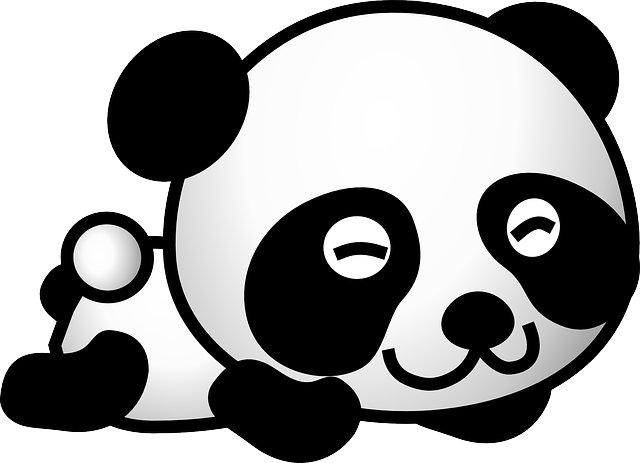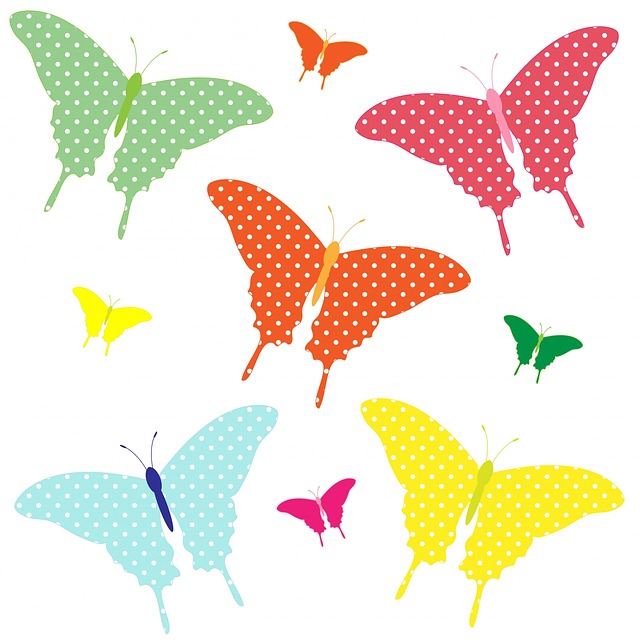・My advice to you is get married: if you find a good wife you’ll be happy; if not, you’ll become a philosopher.
= 私のアドバイスは結婚することです:良い奥さんなら幸せになりますし、そうでないなら哲学者になります。
ソクラテス(ウィキペディア)
・The most important thing is to enjoy your life to be happy: It’s all that matters.
= もっとも大事なことは、幸せになるために人生を楽しむこと:それが全てです。
オードリー・ヘプバーン
・Live life as though nobody is watching, and express yourself as though everyone is listening.
= 誰も見てないように人生を生き、みんなが聞いているように自分を表現しなさい。
ネルソン・マンデラ
・Happiness depends upon ourselves.
= 幸せは自分しだいです。
アリストテレス
・The purpose of our lives is to be happy.
= 人生の目的は幸せになることです。
ダライ・ラマ
・Happiness is not something ready made. It comes from your own actions.
= 幸せは作られるものじゃありません。行動から生まれるのです。
ダライ・ラマ
・The groundwork of all happiness is health.
= すべての幸せの基礎は健康です。
リー・ハント
・I’ve got nothing to do today but smile.
= 今日は、笑顔でいるしかすることがありません。
ポール・サイモン(サイモン&ガーファンクル)
・Happiness is a direction, not a place.
= 幸せは場所ではなく、方向です。
シドニー・ハリス
・For every minute you are angry you lose sixty seconds of happiness.
= 一分怒っている毎に、60秒の幸せを失います。
ラルフ・ワルド・エマーソン
・Happiness often sneaks in through a door you didn’t know you left open.
= 幸せは閉め忘れたドアからヒョコッと入ってくるものです。
ジョン・バリモア
・Curiosity is one of the great secrets of happiness.
= 好奇心は幸せの大きな秘訣の一つです。
ブライアント・H・マギル
・You can’t buy happiness.
= 幸せは買えません。
カート・コバーン
・The happiness you feel is in direct proportion to the love you give.
= 感じる幸せは、与える愛にそのまま比例します。
オプラ・ウィンフリー
・Happiness is composed of misfortunes avoided.
= 幸せは不幸を避けることから作られます。
アルフォンス・カー
・Happiness is hard to recall. Its just a glow.
= 幸せを思い出すのは難しい。ただの光です。
フランク・マコート
・That’s the secret to life… replace one worry with another….”
= それが人生の秘密です…一つの心配を他のと置き換えること。。
チャールズ・M・シュルツ
・Happiness comes when we test our skills towards some meaningful purpose.
= 幸せは自分の能力を意味のあることに試した時に来ます。
ジョン・ストッセル

・To buy happiness is to sell soul.
= 幸せを買うことは、魂を売ることです。
ダグラス・ホートン
・I don’t have the recipe for happiness, but I think the engine is simply having the desire.
= 幸せのレシピは持っていませんが、原動力は欲を持つことだと思います。
ヴァネッサ・パラディ(ウィキペディア)
・I’d rather be miserable loving you than happy with anyone else.
= 他の人と幸せになるよりは、あなたを愛して惨めになります。
アンジェラ・モリソン
・Crying is cleansing. There’s a reason for tears, happiness or sadness.
= 泣くことは掃除することです。涙には、喜びか悲しみか、理由があります。
ディオンヌ・ワーウィック
・Money may not buy happiness, but I’d rather cry in a Jaguar than on a bus.
= お金で幸せは買えませんが、バスよりはジャガーの中で泣きたいです。
フランソワーズ・サガン
・Happiness depends upon ourselves.
= 幸せは自分次第です。
アリストテレス
・Everything in large doses is gonna kill you. Even happiness.
= なんでも大量摂取は、あなたを苦しめます。幸せでも。
サンドラ・ブロック
・A flower blossoms for its own joy.
= 花は自らの喜びのために咲きます。
オスカー・ワイルド
・Happiness in intelligent people is the rarest thing I know.
= 知的な人の幸せは私の知っている中で最も希少なことです。
アーネスト・ヘミングウェイ
・Happiness comes from the full understanding of your own being.
= 幸せは自分自身を最大限に理解することから来ます。
マリーナ・アブラモヴィッチ
・The two enemies of human happiness are pain and boredom.
= 人間の幸せの2つの敵は痛みと退屈です。
アルトゥル・ショーペンハウアー
・My aim in life isn’t so much the pursuit of happiness as the happiness of pursuit.
= 私の人生の目標は幸せの追求よりかは追求の幸せです。
チャールズ・サーチ
・Happiness is when what you think, what you say, and what you do are in harmony.
= 幸せは考えること、言うこと、することが調和している時です。
マハトマ・ガンディー

・Count your age by friends, not years. Count your life by smiles, not tears.
= 年でなく友達で年齢を数え、涙でなく笑顔で人生を数えよう。
ジョン・レノン(ウィキペディア)
・Whoever is happy will make others happy.
= 誰であれ幸せな人は他の人を幸せにします(^^♪
アンネ・フランク
・The best way to cheer yourself is to try to cheer someone else up.
= 自分を励ます一番の方法は他の人を励まそうとすることです。
マーク・トウェイン
・Be happy with who you are and what you do, and you can do anything you want.
= そのままの自分と、今していることに満足するなら、したいことは何でも出来ます。
スティーブ・マラボリ
・Be happy for this moment. This moment is your life.
= この瞬間、幸せでいなさい。この瞬間が人生です。
ウマル・ハイヤーム
・Love is that condition in which the happiness of another person is essential to your own.
= 愛とは他の人の幸せが自分の幸せに不可欠な状況です。
ロバート・A・ハインライン
・Happiness isn’t getting what you want, it’s wanting what you got.
= 幸せとは欲しいものを得ることではなく、持っているものを欲っすることです。
ガース・ブルックス
・Be happy in the moment, that’s enough. Each moment is all we need, not more.
= いまこの瞬間幸せなら、十分です。一つ一つの瞬間が必要な全てです、それ以上はありません。
マザー・テレサ
・Those who do not know how to see the precious things in life will never be happy.
= 人生の貴重なものの見方を知らない人は、決して幸せになりません(*_*;
アレックス・フリン(Wikipedia)
・He who avoids complaint invites happiness.
= 文句を避ける人は幸せを呼びます。
アブー=バクル
・Desire nothing, give up all desires and be happy.
= 何も望まず、欲求を諦め幸せになって下さい。
スワミ シバナンダ
・The true measure of success is how many times you can bounce back from failure.
= 成功の本当の測り方は、何度失敗から立ち直るかです。
スティーブン・リチャーズ・コヴィー
・Happiness is the interval between periods of unhappiness.
= 幸せは不幸(と不幸)な時期の合間です。
ドン・マーキス(Wikipedia)
・The word “happiness” would lose its meaning if it were not balanced by sadness.
= 悲しみでバランスを取っていなければ、幸せは意味を失います。
カール・グスタフ・ユング
・Family and friendships are two of the greatest facilitators of happiness.
= 家族と友情は幸せの最高な世話役です。
ジョン・C・マクスウェル(Wikipedia)
・A smile is happiness you’ll find right under your nose.
= 笑顔は鼻の真下にある幸せです(*^^*)
トム・ウィルソン(Wikipedia)
・The greatest happiness is to transform one’s feelings into action.
= 最高の幸せは感情を行動に変えることです。
アンヌ・ルイーズ・ジェルメーヌ・ド・スタール
・A large income is the best recipe for happiness I ever heard of.
= 大きな収入は聞いた中では幸せの最高のレシピです。
ジェーン・オースティン
・Happiness is no laughing matter.
= 幸せは笑い事じゃない。
リチャード・ウェイトリ-(Wikipedia)
・A good education is another name for happiness.
= 良い教育は幸せの別名です。
Ann Plato(英語)
・There is no happiness outside of ourselves.
= 自分の外には幸せはありません。
ブライアント・H・マギル(Wikipedia)
・The greatest happiness is to know the source of unhappiness.
= 最高の幸せは不幸の元を知ることです。
フョードル・ドストエフスキー
・Happiness to me is simply not being unhappy.
= 私にとって幸せとは不幸じゃないことです(*^^*)
ジャスパー・キャロット(Wikipedia)
・There is no correlation between happiness and amounts of money.
= 幸せと金額に相互関係はありません。
ケシャ
・Those who seek happiness miss it, and those who discuss it, lack it.
= 幸せを探す人は幸せを見逃し、語る人は幸せに欠きます。
ホルブルック・ジャクソン(Wikipedia)

・Even if you’re unhappy, just pretend that you’re happy.
= 幸せじゃなくても、ただ幸せに装って下さい。
Eventually, your smile will be contagious to yourself.
= 笑顔でいればその内、幸せになります。
I had to learn that.
= それを学ぶ必要がありました。
I used to think, ‘I’m being fake,’ but
= ‘自分を偽っている”と昔は思っていましたが
you know what?
= ちょっと待って下さい
Better to be fake and happy than real and miserable.
= 偽って幸せな方が本当で惨めになるより良いです。
エヴァンジェリン・リリー(ウィキペディア)
・The real man smiles in trouble, gathers strength from distress, and grows brave by reflection.
= 本当の男性は困った状況で微笑み、苦痛の中で力を集め、非難を受ける度に勇気を持ちます。
トマス・ペイン
・Smile.
= 笑ってください。
Have you ever noticed how easily puppies make human friends?
= 子犬がとても簡単に人間の友達を作っているのに気付きましたか?
Yet all they do is wag their tails and fall over.
= でもしているのは、しっぽを振って転んでいるだけです。^^;
ウォルター・アンダーソン (Walter Anderson)
・I am generally a very happy and easygoing person.
= 基本的にとても幸せだし気楽です。
I also believe it’s always better to meet people with a smile rather than looking cold, especially when you first meet.
= また冷たい感じな人より笑顔の人に会うほうが良いと思います、特に初めて会うとき。
It changes everything.
= 全部違っちゃいますから。
ハイディ・クルム
・I’ve been successful in different areas, but
= 様々な分野で成功してきましたが
nothing brings a smile to my face more than my oldest son, Zaire, and my second son, Zion, saying the kind word of ‘Dad.’
= 長男のザイールと次男のジオンから優しく’パパ’と言われるほど、笑顔にさせられることはありません。
ドウェイン・ウェイド
・I had a dream about you.
= あなたの夢を見ました。
You were a smile salesman, and I was in the market for a new grin.
= あなたは笑顔のセールスマンで僕は、はにかみ笑いの市場にいました。
When you told me your prices, I thought it was a joke and I started to laugh.
= あなたが値段を言った時、冗談かと思って僕は笑いました。
Then I realized you’d just given me your product for free, and
= そしたら商品を無料でくれようとしていることに気付き
I walked away with a smile and a full wallet.”
= 笑顔と財布をいっぱいにしたままその場を去りました(*^^*)
Jarod Kintz
・I have had wrinkles on my forehead and my smile line since I was a kid.
= 小さい頃から額のシワと笑いジワがありました。
I see them in my own kids.
= 自分の子供たちにも、それは見られます。
I know what they’re going to look like.
= 彼らが大人になったら、どういう見た目になるか想像できます。
So it’s kind of like that’s my personality.
= だからこれが私、のようなものです。
I feel the older you get, too, the more confident you become just in your own skin.
= 年を重ねるごとに、自分に自信を持っているとも感じています。
フェイス・ヒル
・The smile on your face lets me know that you need me.
= あなたの笑顔が私を必要だと教えてくれます。
There’s a truth in your heart that says you’ll never leave me, and
= あなたの心にある真実が私を去らないと言い、
the touch of your hand says you’ll catch me whenever I fall.
= 触れる手が、いつでも私が崩れ落ちたとき支えてくれると言っています。
アリソン・クラウス


